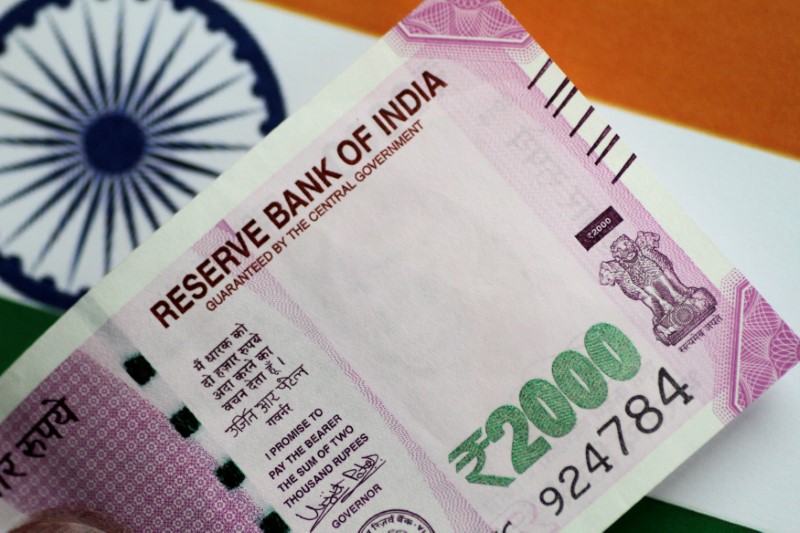(Bloomberg) -- India is taking its first baby steps to tackle a growing offshore market for its currency.
Two exchanges -- India International Exchange (IFSC) Ltd. and NSE IFSC Ltd. -- will on Friday begin trading foreign-exchange settled rupee derivatives, part of a push to bring the market back home.
The launch comes amid the world’s most expansive coronavirus lockdown, which has crippled businesses and hurt trading volumes in the country’s financial markets. The timing may make it harder for the contracts to gain traction even as volumes in rupee trading overseas continue to grow.
“Volumes in an exchange typically take time to pick up,” said Abhishek Goenka, chief executive at India Forex Advisors Pvt. “The bid-ask spreads have to come down and a lot of market-making has to happen to get decent activity.”
India’s policymakers have been increasingly concerned about the growing heft of the rupee trades in venues overseas. The average daily volume for the rupee in London totaled $47 billion in April 2019, according to the Bank for International Settlements. That’s a fivefold jump from 2016, and more than the $34.5 billion of trades executed locally at the time.
NDF Market
Offering onshore rupee derivatives is similar to what Indonesia attempted in 2018, when it launched non-deliverable forward contracts settled in rupiah.
While the forex-settled rupee derivatives may take time to take off, the move will help the Reserve Bank of India get a better grip on the working of the NDF market and help investors get better quotes than the spreads they are charged offshore, India Forex’s Goenka said.
The RBI has allowed local banks to participate in the offshore currency market from June 1, which could pose another obstacle to onshore contracts from becoming popular, analysts say.
NDFs, nominally a tool for hedging, are popular with investors who want to bet on the currency without taking delivery. They’re often used in major financial centers in place of currencies that don’t trade round-the-clock.
Some central banks have blamed NDFs for causing disruptions in local markets when spreads widen overnight. In March, the spread between the one-month onshore and offshore dollar-rupee contract widened by more than one rupee, compared with a gap of less than 10 paise seen normally, according to data compiled by Bloomberg. It still remains wider-than-usual at about 50 paise.
India’s rupee has been among the worst-performing Asian currencies in the past month, dropping 0.2% versus the dollar.
The onshore currency market should be kept at distance from the NDFs to weaken the transmission of speculation, said Ananth Narayan, a professor of finance and former South Asia head of financial markets at Standard Chartered (OTC:SCBFF) Plc.
“I would prefer if the bridges between the onshore and offshore were made thinner,” he said. “Entities with genuine interest should be encouraged to trade onshore by easing hedging rules.”
Contract specifications:
- India INX will offer trading on dollar/rupee futures and options contracts for 22 hours daily from 4:30 AM to 2:30 AM of next business day
- The market regulator has set gross open position across all contracts at 15% of total open interest, or $1 billion, whichever is higher, for brokers, institutional investors and eligible foreign investors. The limit can’t exceed 6%, or $100 million, for other clients.
©2020 Bloomberg L.P.
